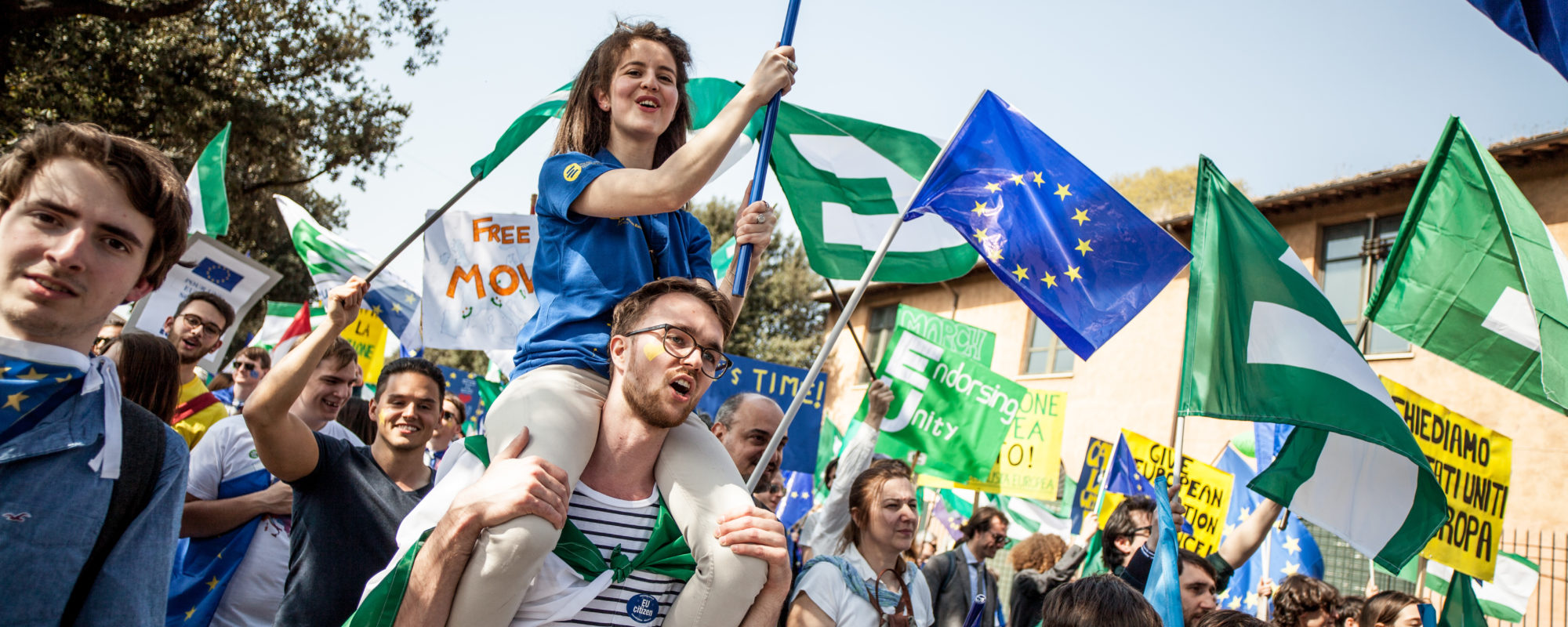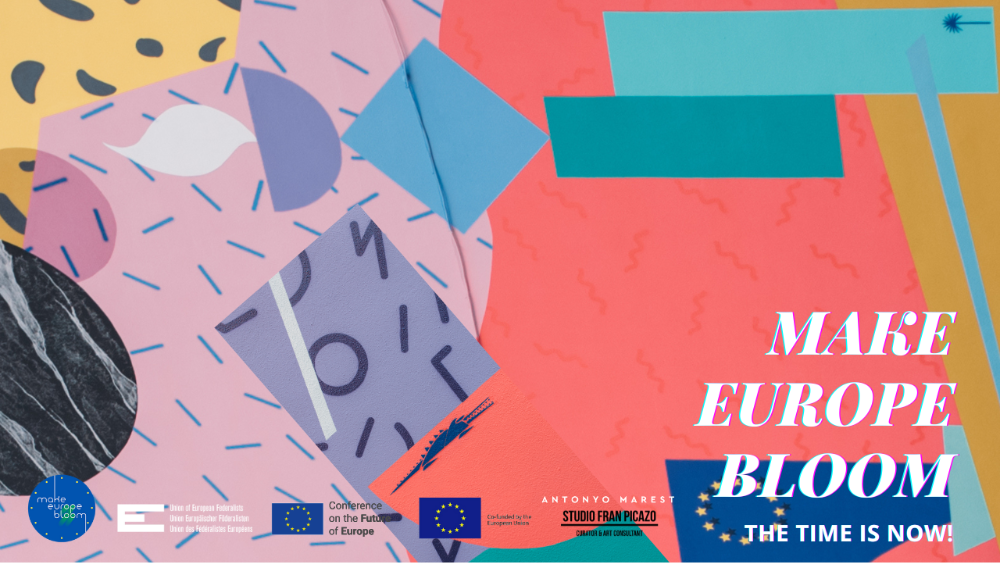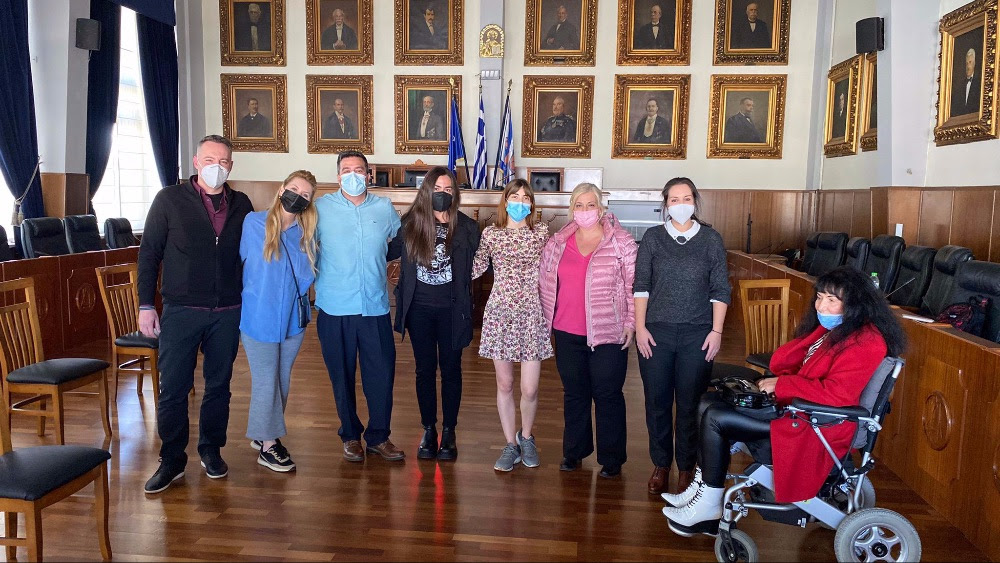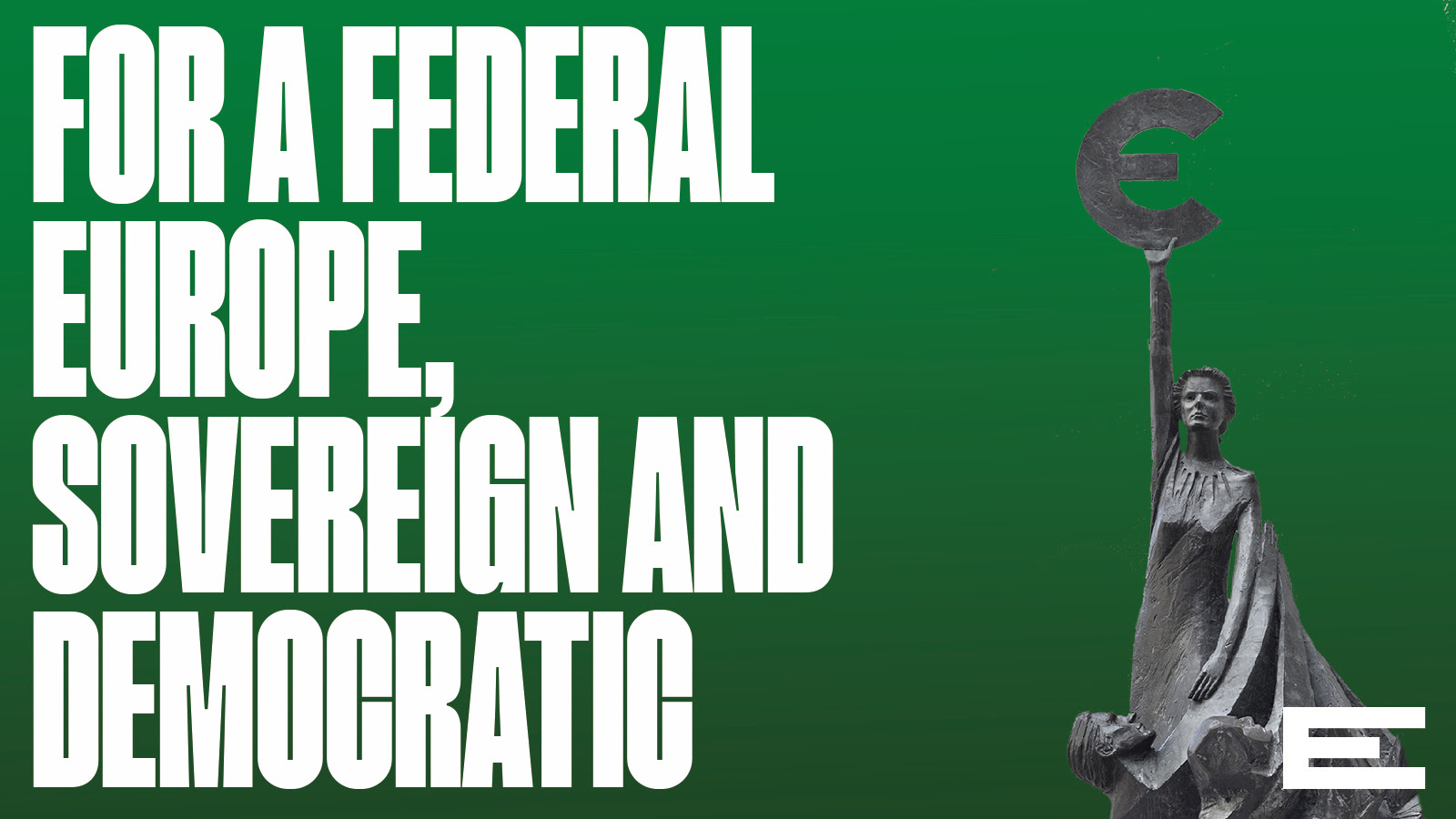
| Dear FC-Members, Dear Presidents and Secretary Generals of the Sections, The return of the war in Europe, with Russia’s brutal aggression against Ukraine, forces us as Europeans to speed up the process of building a true European sovereignty and a strong and democratic European power, directly legitimised by the European citizens. This is necessary in order to build a true European defence, an energy union, a true foreign policy, a migration policy, etc… As federalists, our best contribution at this stage could be to focus on the Conference on the Future of Europe, so that it includes in its conclusions the need to open a Convention to amend the Treaties, on the basis of the demands that have clearly emerged from the national and European citizens’ panels and from the digital platform. As you know, federalist indications (including our indications as federalist organisations) were predominant; all the more so in such a dramatic moment marked by the return of war, the Conference cannot ignore them. This is why I propose you an exceptional effort over the next few weeks to collect signatures on this petition below. It is published on Change.org (LINK), and addressed to the Board of the CoFoE. Our goal must be to collect between 15.000 and 30.000 signatures by 20 April. They will be instrumental in putting pressure on the Council (where some governments are trying to block the results of the Conference) and in supporting the European Parliament, which, on the contrary, is trying to fight for the opening of a convention. Change.org is a platform on which gathering support is very easy. We can upload several language versions, which remain linked, so the signatures add up; it encourages the circulation of the link to the petition, connects well to social networks, highlights partial results, important signatures, and it is really friendly. I strongly invite you to sign and share the link of the petition. Below, in the communication from the Secretariat, you will find information on how to use social networks as well to spread the link and the invitation to sign. Further info and meetings will follow, to coordinate our engagement on this common action. I would also like to kindly ask you to consider translating the text into your own languages, to further enhance its circulation. The time to make a federal Europe, sovereign and democratic is now: let us all engage in this battle, trying to live up to our historical responsibilities. |
| With federalist regards, Sandro GOZI President |

| Information about the petition |
WHO IS THE PETITION ADDRESSED TO?
Executive Board of the Conference on the Future of Europe
- Guy Verhofstadt, Co-chair of the CoFoE, Member of the European Parliament
- Dubravka Šuica, Co-chair of the CoFoE, Vice-President of the European Commission for Democracy and Demography
- Clément Beaune, Co-chair of the CoFoE, State Secretary for European Affairs for the French Council Presidency
WHAT WE WANT
To respect the will of the citizens as expressed in the Conference on the Future of Europe, the various citizens’ panels and the future.europa.eu platform.
We ask to highlight in the conclusions of the Conference
- the need for concrete institutional reforms to create a federal political union;
- the call for a Convention to reform the Treaties.
FOR POLITICAL, ECONOMIC, CULTURAL AND ACADEMIC REPRESENTATIVES
Share the petition – (i) Webpage
| You can find all of the content of this newsletter and more info about the campaign here: https://bit.ly/moreEUROPEnowENG You can use to disseminate the petition and the various instrument in an easy way. |
| Share the petition – (ii) Social hashtag |
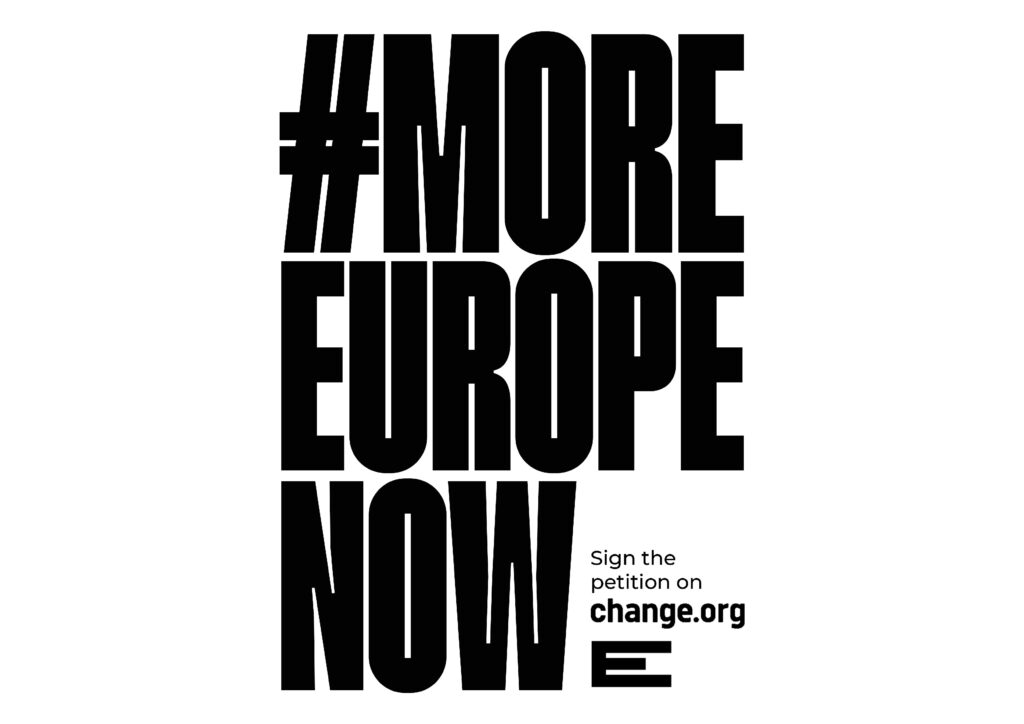
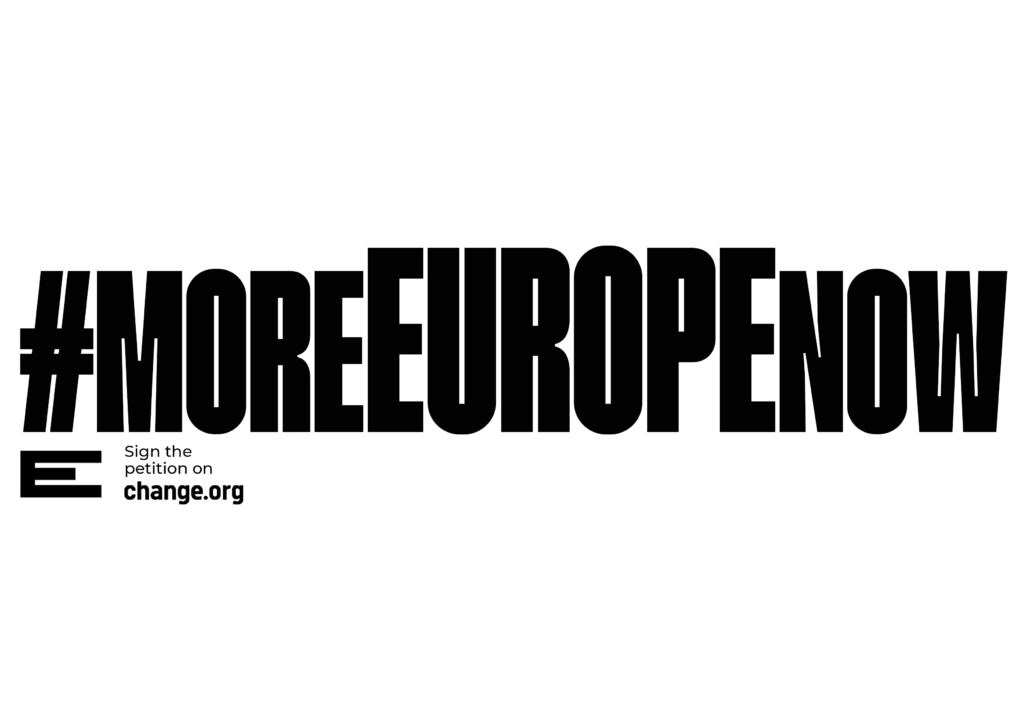
| Show your support for the petition! 1. Download the hashtag (VERTICAL or HORIZONTAL) and print it out. 2. Take a selfie. 3. Upload it to your favourite social media and use the hashtag #moreEUROPEnow. |
| Share the petition – (iii) Message for Whatsapp |
| Copy and paste this message and send it to your contacts |
| #𝗺𝗼𝗿𝗲𝗘𝗨𝗥𝗢𝗣𝗘𝗻𝗼𝘄! – 𝗦𝗶𝗴𝗻 𝘁𝗵𝗲 𝗽𝗲𝘁𝗶𝘁𝗶𝗼𝗻 𝗳𝗼𝗿 𝗮 𝗳𝗲𝗱𝗲𝗿𝗮𝗹 𝗘𝘂𝗿𝗼𝗽𝗲, 𝘀𝗼𝘃𝗲𝗿𝗲𝗶𝗴𝗻 𝗮𝗻𝗱 𝗱𝗲𝗺𝗼𝗰𝗿𝗮𝘁𝗶𝗰 As war returns to Europe, the Conference on the Future of Europe becomes an opportunity to call for the treaty reforms needed to create a federal Union. 𝗦𝗵𝗼𝘄 𝘆𝗼𝘂𝗿 𝘀𝘂𝗽𝗽𝗼𝗿𝘁 𝗳𝗼𝗿 𝘁𝗵𝗲 𝗽𝗲𝘁𝗶𝘁𝗶𝗼𝗻 1) Download the hashtag #moreEUROPEnowhttps://bit.ly/hashtagMOREEUROPENOWeng 2) Take a selfie 3) Upload it to the social network of your choice and ️ use the hashtag #moreEUROPEnow 𝗠𝗼𝗿𝗲 𝗶𝗻𝗳𝗼 Go to the link https://bit.ly/ moreEUROPEnowENG 𝗦𝗵𝗮𝗿𝗲 𝘁𝗵𝗶𝘀 𝗺𝗲𝘀𝘀𝗮𝗴𝗲 𝘄𝗶𝘁𝗵 𝘆𝗼𝘂𝗿 𝗰𝗼𝗻𝘁𝗮𝗰𝘁𝘀. 𝗧𝗛𝗔𝗡𝗞 𝗬𝗢𝗨! |
| Share the petition – (iv) Multilingual versions |
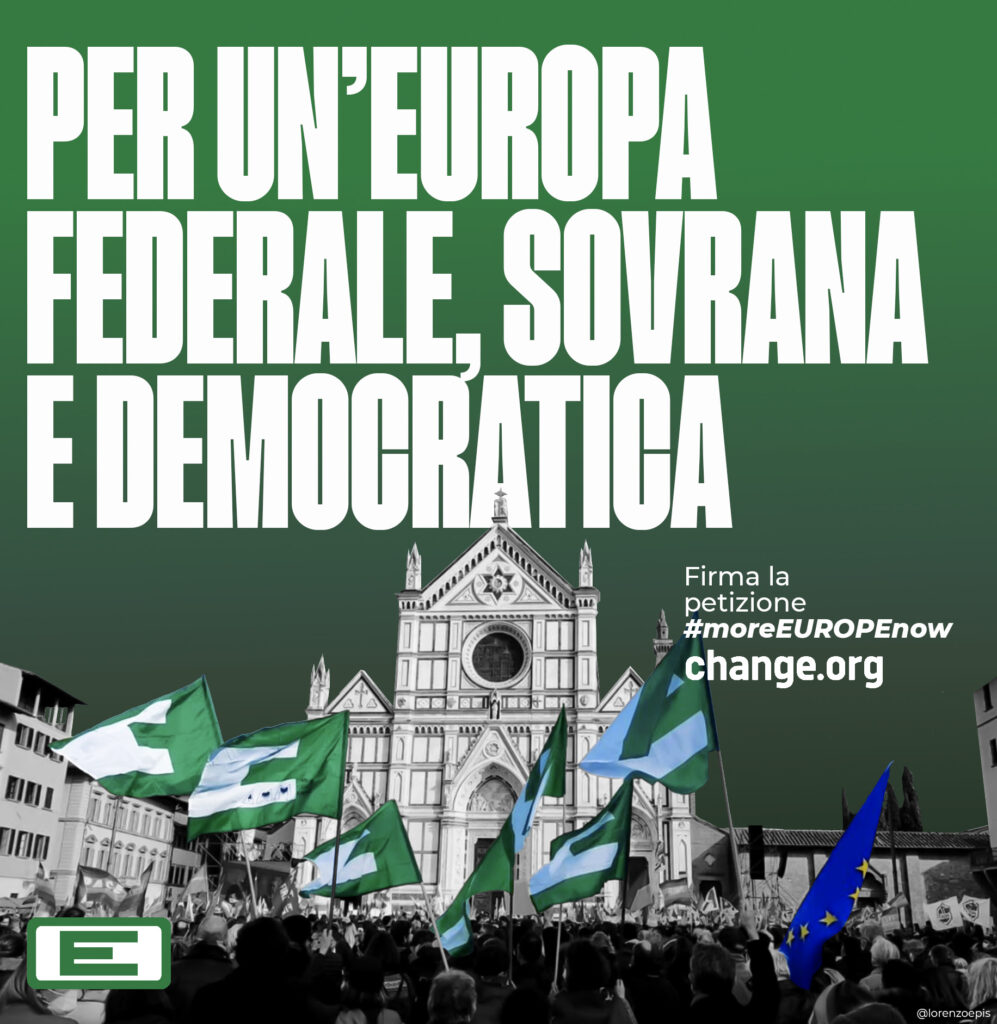
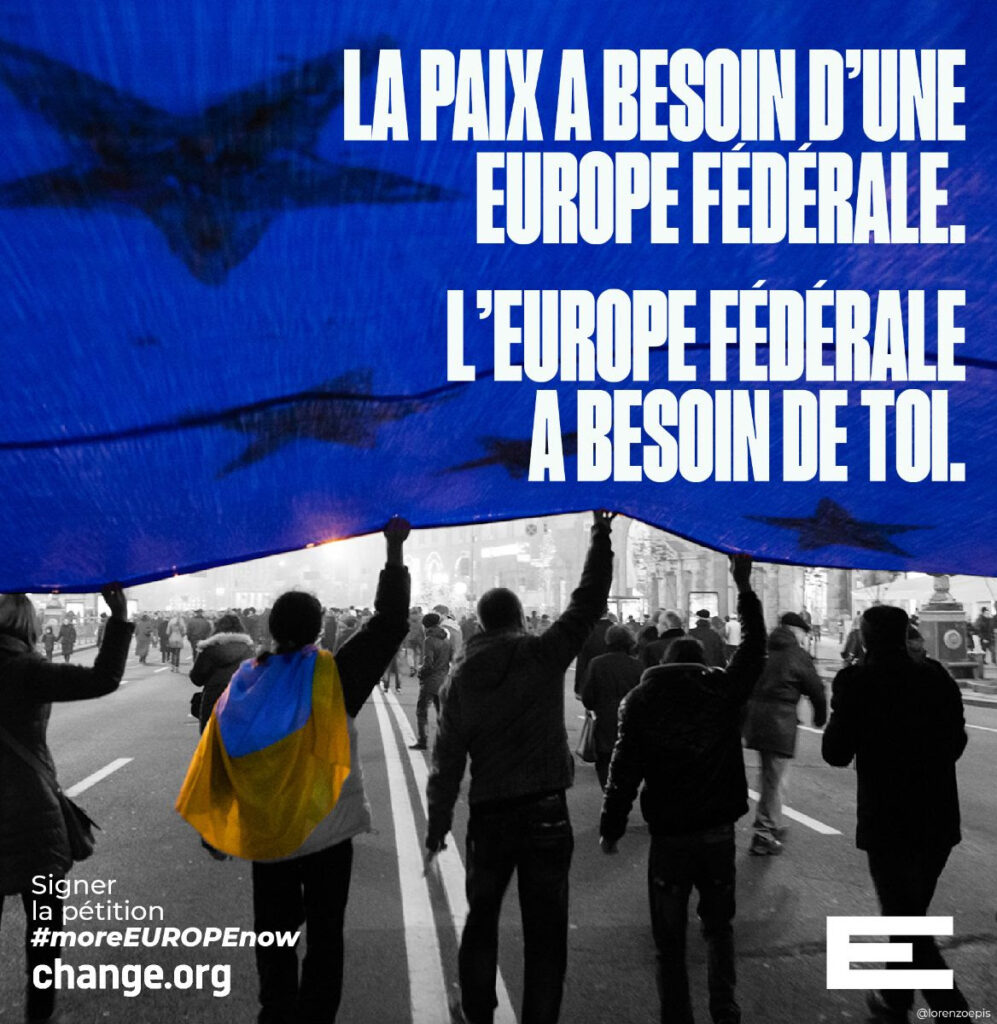
| Thanks to Change.org we can add a translation of the petition at any time and an image adapted to that language. If you want to distribute the petition in a language other than those proposed, send to secretariat@federalists.eu the translation of the petition and the Secretariat will upload it on Change.org. |
| Join the Appeal “Our federal Europe: sovereign and democratic” |

| Join the Appeal |
| At the start of CoFoE on 9 May 2021, UEF, together with the Spinelli Group and supported by the European Movement International, launched the Appeal “Our federal Europe: sovereign and democratic”, in which we summarised our ideas for the future of Europe. The appeal is still available on the UEF website. We invite you to circulate it also at local level (mayors, regional presidents, members of the regional and national parliaments) to further disseminate it. The initial signatories were: Sandro GOZI, Brando BENIFEI, Eva MAYDELL, Esteban GONZÁLEZ PONS, Domènec RUIZ DEVESA, Gabriele BISCHOFF, Pascal DURAND, Daniel FREUND, Damian BOESELAGER, Dimitrios PAPADIMOULIS, Fabio Massimo CASTALDO. By the time of the official launch of the CoFoE, more than 450 high-level personalities had joined the appeal. Among them we would like to mention Mario Vargas Llosa, Javier Cercas and Daniel Cohn-Bendit; four former presidents of the European Parliament as José María Gil-Robles Gil-Delgado (1997-1999), Enrique Barón Crespo (1989-1992), Martin Schulz (2012-2017) and Hans-Gert Pöttering (2007-2009). The long list also includes: the former European Commission President Romano Prodi, the first EU High Representative for Foreign Policy Javier Solana de Madariaga, the former Commissioners Joaquín Almunia Amann, Pedro Solbes Mira and Marcelino Oreja y Aguirre; as well as sixteen former prime ministers, including Spain’s Felipe González Màrquez and José Luis Rodríguez Zapatero; Italy’s Mario Monti, Matteo Renzi, Enrico Letta and Giuseppe Conte; Greece’s Alexis Tsipras and Belgium’s Guy Verhofstadt, co-chair of the CoFoE’s executive committee. An overview of the list is available here. |

